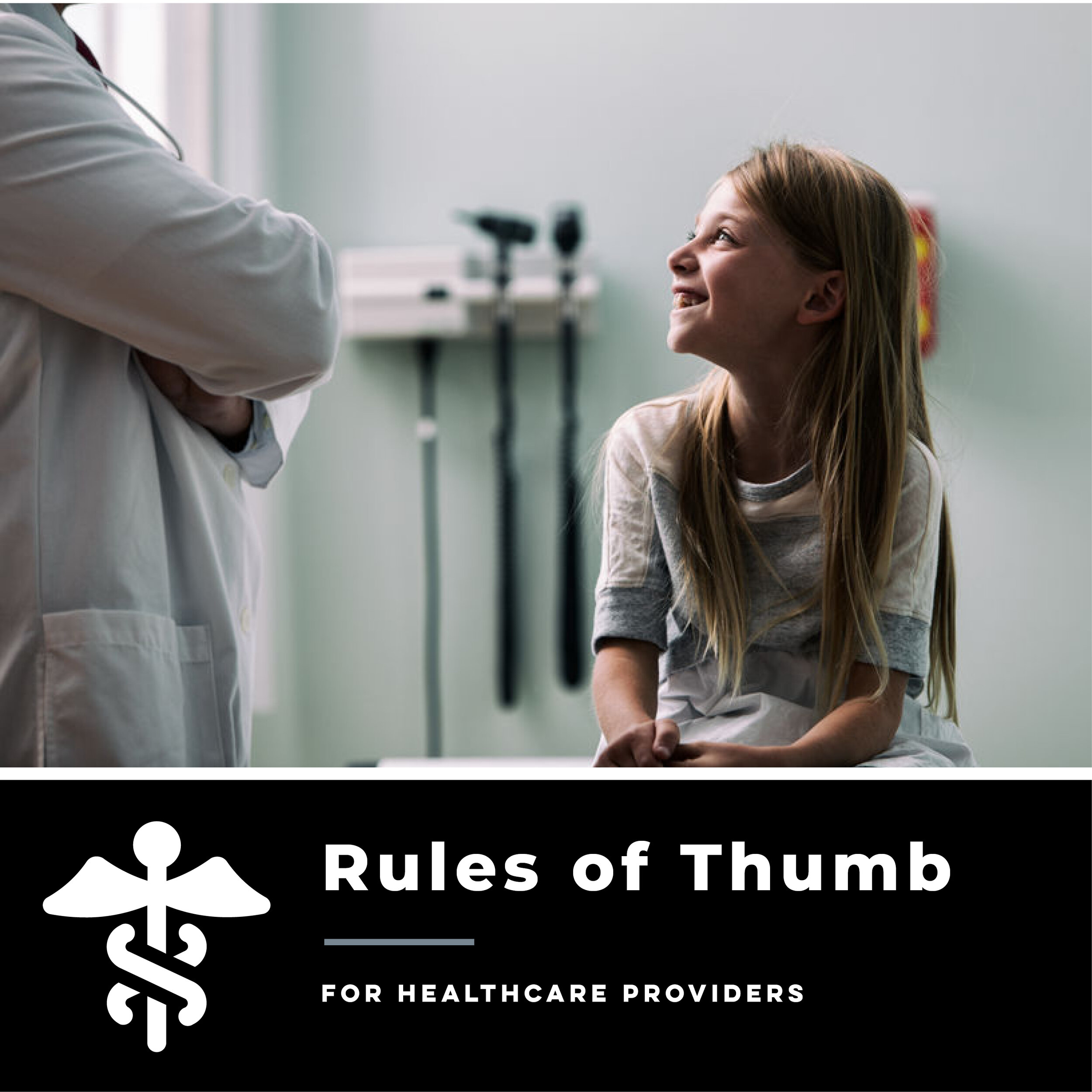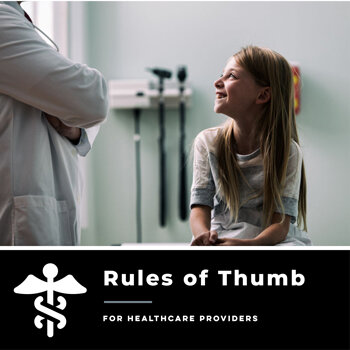


*
CLICK HERE to download our Rules of Thumb for Healthcare Providers! We will email you every 6 weeks (give or take) with tips to help you navigate raising healthy, happy kids in a digital world. You can unsubscribe at any time. Enjoy!
In medical school, clinicians are trained on the key components of the annual checkup: physical exam, any necessary immunizations, how things are going at school and home. Today, the format of a well-child visit hasn’t changed much from years ago, however, the number one topic coming up for many medical providers is something not covered in med school.
With suicide becoming the second leading cause of death for teens in the US, Dr. Marie Belin of Village Pointe Pediatrics shares that educating parents about screen and social media use has become just as important to preventative care as discussing car seat and helmet use. “As a pediatrician short on time in a well visit, if I have to choose between discussing vegetable intake and screen use due to time constraints, I will chose screen use almost every time.”
“Usually, gaming or YouTube comes up,” says Dr. Libby Milkovich, a behavioral and developmental pediatrician at Children’s Mercy Hospital. “Also, parents bring up screens frequently because there are a ton of disruptive behaviors that are triggered by transitioning away from technology.”
And she says that’s for preschool and elementary kids.
For adolescents, Dr. Milkovich talks to them about personal phone use, social media and their friends’ habits. “I also try to understand their online community participation,” she says.
While her specific practice gives Dr. Milkovich extended time to check in on children’s digital health, she’s not the only healthcare professional who considers it just as important as physical health.
Stacey Shoman, a nurse practitioner at Premier Pediatrics, says she, too, makes a point to ask patients about their online habits—and she’s learned that younger is better. “I’ve talked to 16-year-olds who struggle with anxiety, and the root cause was social media,” she tells us. “When I’d suggest taking a two-week break from it, their reaction would make you think I was taking away a puppy. It made me realize that we can’t wait until they’re 16 to talk to them about this.”
The common thread across our conversations? It’s never too early to talk to kids about digital health. These two have developed their own approaches, but for any healthcare provider looking for a place to start, Pediatrics published five questions to consider for all kids over 11:
Which social media sites and/or apps do you regularly use?
How long do you spend on social media sites and/or apps in a typical day? (note: many kids and parents have never checked their own screen time stats)
Do you think you use social media too much?
Does viewing social media increase or decrease your self-confidence?
Have you personally experienced cyberbullying, sexting, or an online user asking to have sexual relations with you?
But in many ways, those well visits provide time not just to hear the child’s thoughts on questions such as those above, but also to educate and equip the parents. If you are a healthcare provider, consider sharing START’s Rules of Thumb to get the conversation started:
When studies show the average person checks a smartphone 80 times per day, we need to think about what we are modeling for our kids. Of course, we will never be perfect…but an honest look at our own digital habits is a great first step toward building empathy, trust, and digital health as a family.
Establish device-free zones in your home—a time to recharge and reconnect as a family. A great place to start is mealtime and bedtime—keep phones out of sight when you are eating and have kids charge their devices outside of their bedrooms at night. The benefits are powerful, and can create lifelong habits that foster your child’s mental health and digital well-being.
When navigating the internet, your family should apply the highest privacy settings and practices. But, when it comes to child privacy, the opposite is true. Your child’s digital life—including passwords—should be shared with you. Install filters or monitoring systems to act as a safety net for your child. For additional accountability, avoid using devices in private.
Before you hand your kids the keys to a car, you prepare them to navigate risky situations and road hazards. They spend many years shadowing you in the backseat, followed by driving with a learner’s permit—with you logging hours by their side to equip them with the needed skills. Just like a car, screentime comes with great responsibility—and requires an intentional training process.
Keep your eye on what matters most—the life right in front of you. Be intentional about deepening connections with people in your family and community—both online and offline. Show your kids how to be captivated by life—not screens. Teach them to ask this simple question: At the end of my life, what will I say was time well spent?
When parents choose to exercise ideas like these at home, physicians, nurses and the like have a neat opportunity to reinforce them during well-child visits. And perhaps Ms. Shoman says it best: “It’s little things healthcare providers can talk about that can make a huge difference.”
(C) START 2020
*Time Well Spent (R) phrase and quote used with permission from the Center for Humane technology.